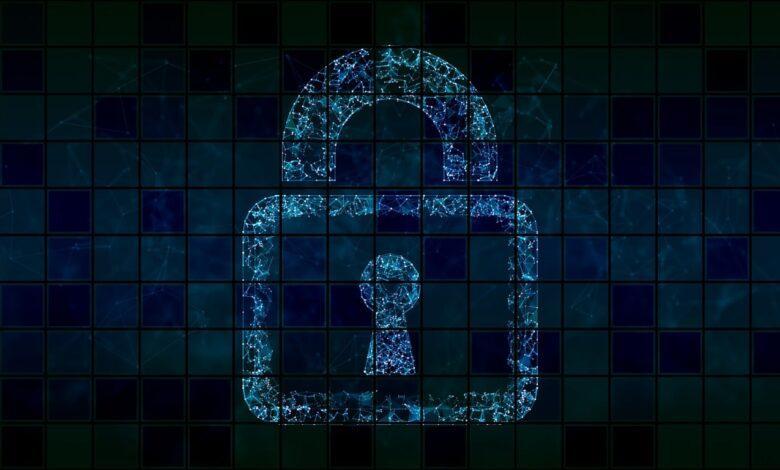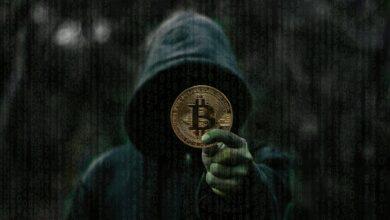Exploring Crypto Hacking – Ethics and Morality

In an era dominated by the digitalization of currency, the realm of cryptocurrency has emerged as both a beacon of innovation and a crucible for ethical dilemmas. As we navigate this intricate landscape, the principles governing hacking within the cryptocurrency domain warrant careful examination. The morality of cyber intrusion takes on a nuanced character in a space that promises decentralization, anonymity, and, paradoxically, vulnerability. What does it mean to engage in hacking when the target is not merely data but also the very fabric of financial freedom?
At the heart of this discourse lies a complex interplay between ethics and technology. The considerations surrounding cyber activities in cryptocurrency are multifaceted; they encompass everything from the motivations behind hacking to the consequences that ensue. Are these intrusions acts of exploitation or forms of resistance against oppressive systems? Such inquiries demand a reflective approach, urging us to dissect our assumptions about what constitutes ‘ethical’ behavior in a landscape often clouded by chaos and profit-driven motives.
Moreover, as we delve deeper into the principles that underpin hacking within this digital currency realm, it becomes evident that our understanding must evolve beyond simplistic categorizations of good versus evil. The ethical dimensions of crypto hacking invite us to ponder fundamental questions about trust, security, and the collective responsibility we share as participants in this burgeoning ecosystem. In doing so, we not only illuminate the darker corners of cyber activity but also celebrate the potential for ethical hacking to act as a catalyst for positive change within the cryptocurrency space.
The Ethics of Hacking in the Cryptocurrency Space
In the rapidly evolving realm of cryptocurrency, the ethics of hacking has emerged as a critical topic for discussion. The digital currency landscape, characterized by its decentralized nature and anonymized transactions, presents unique challenges that require careful ethical considerations. Hacking, often viewed through a negative lens, takes on multifaceted dimensions within this context, leading to questions about morality and the implications of cyber intrusion in financial systems. These ethical dilemmas are not merely theoretical but have real-world consequences that impact users, investors, and the broader economy.
At the core of the ethical discourse surrounding hacking in cryptocurrency is the distinction between white-hat and black-hat hackers. White-hat hackers engage in activities aimed at improving security and identifying vulnerabilities within cryptocurrency platforms, often with permission or collaboration from stakeholders. Their actions can be seen as ethical because they contribute to the overall health and security of the digital currency realm. Conversely, black-hat hackers exploit weaknesses for personal gain, engaging in theft or manipulation without regard for morality or the well-being of others. This dichotomy illustrates how motivations behind hacking can significantly influence the ethical framework under which such actions are evaluated.
Moreover, the principles of hacking in the cryptocurrency space must be scrutinized through a lens of responsibility and accountability. Ethical hacking practices advocate for transparency and consent, ensuring that any cyber intrusion is conducted with an understanding of its potential ramifications. For instance, when vulnerabilities are disclosed responsibly, it allows developers to address these issues before malicious actors exploit them. In this way, ethical considerations align with the broader goals of fostering trust and stability within the cryptocurrency market.
The morality of cyber intrusion is further complicated by the varying perceptions of what constitutes a legitimate target. For example, hacking a centralized exchange might be viewed as more ethically acceptable if it leads to exposing fraud or systemic corruption within that organization. However, such justifications become murky when considering the potential fallout for innocent users who may lose their funds in the process. Thus, discussions about ethical hacking must grapple with the unintended consequences that can arise from even ostensibly noble intentions.
Additionally, regulatory frameworks surrounding cryptocurrency often lag behind technological advancements, leaving gaps that can be exploited by hackers on both sides of the ethical spectrum. The lack of clear guidelines can lead to a moral ambiguity where individuals may rationalize their actions based on perceived injustices within the cryptocurrency ecosystem. This environment creates a breeding ground for ethical dilemmas as participants navigate between acting in self-interest and adhering to principled standards that promote fairness and security.
Ultimately, engaging with the ethics of hacking in crypto requires a nuanced understanding of both technology and human behavior. As we continue to forge ahead into this digital frontier, it is imperative that stakeholders–developers, investors, regulators, and users alike–commit to establishing ethical standards that prioritize integrity and security. By fostering a culture of responsible hacking practices, we can cultivate an ecosystem where innovation flourishes alongside robust protections against malicious activities, thereby enhancing both trust and value within the cryptocurrency landscape.
Understanding Ethical Hacking in the Cryptocurrency Space
In the rapidly evolving landscape of digital currency, ethical hacking emerges as a pivotal discipline that seeks to balance innovation with security. Ethical hackers operate within a framework defined by principles that prioritize the well-being of users and the integrity of the cryptocurrency ecosystem. These individuals utilize their skills to identify vulnerabilities, thereby preventing potential cyber intrusions that could compromise sensitive financial data or disrupt market stability. By engaging in ethical hacking, one not only adheres to legal standards but also contributes positively to the broader community of digital currency stakeholders.
The morality of cyber intrusion in the realm of cryptocurrency is a contentious topic. On one hand, unauthorized access can lead to significant losses for investors and undermine trust in digital currencies. Conversely, when conducted ethically, such intrusions serve as wake-up calls for developers and exchanges, prompting them to fortify their systems against malicious attacks. This duality highlights the importance of context; while any form of intrusion typically carries a negative connotation, the ethical hacker’s intent is crucial in determining whether their actions are deemed acceptable or reprehensible.
Within this nuanced discourse lies an intricate web of ethical considerations that must be navigated. Ethical hackers must weigh the potential benefits of their findings against the risks posed to innocent users. For instance, discovering a vulnerability in a widely-used cryptocurrency exchange may warrant immediate disclosure to prevent exploitation by malicious actors. However, if such information leaks prematurely, it could incite panic among users or invite opportunistic attacks. Thus, ethical considerations necessitate a careful approach, ensuring that actions taken are both responsible and transparent.
Principles of hacking within the digital currency realm further illustrate this delicate balance between innovation and security. Ethical hackers typically adhere to established guidelines that emphasize consent, responsibility, and non-maleficence. By seeking permission before probing systems and respecting boundaries set by organizations, they establish a foundation of trust that is essential for constructive collaboration. Moreover, these principles reinforce the notion that hacking can be a force for good when aligned with ethical frameworks and societal norms.
Furthermore, understanding the ethics surrounding crypto hacking requires an appreciation for the broader implications on user autonomy and privacy. Users invest not only their capital but also their trust in these platforms; thus, ethical hackers have an obligation to protect this trust through proactive measures. This responsibility extends beyond mere compliance with laws; it demands a commitment to preserving the integrity of user data and fostering an environment where individuals feel secure in their transactions within the cryptocurrency space.
In conclusion, as digital currencies continue to gain prominence, the role of ethical hacking will undoubtedly become more critical. By exploring the morality of cyber intrusion and adhering to established principles, ethical hackers contribute significantly to securing this dynamic market. The ongoing dialogue about ethics within this context encourages a deeper understanding of the responsibilities inherent in navigating the complex intersection of technology and finance. Ultimately, embracing these ethical considerations will empower both developers and users alike to engage more confidently within the burgeoning world of cryptocurrency.
The Ethics of Hacking in the Cryptocurrency Space
The impact of hacks on cryptocurrency can be profound, reverberating throughout the entire digital currency ecosystem. High-profile breaches, such as the Mt. Gox incident or the exploit of Poly Network, have resulted in the loss of millions of dollars, shaking investor confidence and raising questions about the security protocols within the realm of crypto. Each intrusion not only affects individual investors but also destabilizes the fragile trust that underpins decentralized finance. Consequently, these cyber events can lead to increased scrutiny from regulators and a push for more stringent security measures across platforms.
When examining the morality of cyber intrusion in cryptocurrency, one must navigate a complex landscape where ethical boundaries are often blurred. While some hackers may assert that their actions reveal vulnerabilities that need addressing, others operate with malicious intent, seeking personal gain at the expense of others. This dichotomy raises significant ethical considerations: is it acceptable to breach security for the sake of improvement, or does this simply reinforce a culture of exploitation? The principles of hacking within this digital currency realm must therefore be scrutinized through a lens that weighs potential benefits against the harm inflicted on users and the broader market.
The principles of hacking in cryptocurrency can be likened to a double-edged sword; they can serve both as a tool for innovation and a weapon for destruction. Ethical hackers often argue that their responsibilities include identifying weaknesses before they can be exploited by malicious actors. However, this noble intent becomes murky when one considers the methods employed and the fallout experienced by victims of illicit activities. In essence, ethical hacking must operate within a framework that emphasizes transparency, consent, and the greater good–elements that are frequently compromised in the chaotic world of crypto.
Ultimately, ethical considerations in crypto hacking are paramount as they shape our understanding of responsibility within this burgeoning space. As cryptocurrencies continue to evolve, so too must our approach to cybersecurity and ethical standards. Balancing innovation with security requires ongoing dialogue among stakeholders–developers, investors, and regulators alike–to fortify trust while promoting an environment where ethical principles thrive. In this ever-shifting landscape, it is crucial to cultivate a culture that prioritizes integrity and accountability amidst the complexities of digital currency transactions.
Concluding Thoughts on the Ethics of Hacking in the Cryptocurrency Space
As we traverse the complex terrain of cryptocurrency, it becomes imperative to reflect upon the intricate interplay of ethics and cyber intrusion within this burgeoning digital currency realm. The principles that govern our understanding of hacking must evolve in tandem with the rapid advancements in technology and the increasing sophistication of cyber threats. Each act of intrusion carries with it a weighty moral consideration, one that can either uphold or undermine the very foundations of trust that cryptocurrencies aim to establish.
In examining the ethical considerations in this landscape, we recognize that not all hacking is inherently malicious; some acts may serve as necessary interventions aimed at safeguarding the integrity of our digital assets. However, this does not diminish the responsibilities borne by those who engage in such activities. The morality of cyber intrusion hinges upon intent, execution, and ultimately, the consequences that ripple through the community. It is within this context that we must aspire to cultivate a culture grounded in ethical hacking practices.
Principles for Ethical Hacking in Cryptocurrency
- Transparency: Engaging openly with stakeholders fosters trust and accountability.
- Responsibility: A hacker’s obligation extends beyond mere curiosity; it encompasses protecting users from potential threats.
- Impact Awareness: Understanding the broader implications of one’s actions is crucial in determining ethical boundaries.
- Community Focus: Prioritizing the well-being of the cryptocurrency ecosystem over individual gain reinforces collective security.
The digital landscape is fraught with challenges, yet it also offers unprecedented opportunities for innovation and collaboration. By embracing a robust framework of ethics within hacking practices, we can navigate these challenges more effectively. As we continue to explore the depths of cryptocurrency security, let us remain vigilant guardians of both our currencies and our community’s values.
In conclusion, as we endeavor to mitigate risks and bolster security measures within this dynamic space, it is essential to foster a dialogue around these ethical considerations. By doing so, we not only enhance our understanding of hacking but also illuminate a path toward a more secure future for digital currencies–a future where morality and innovation coexist harmoniously within the realm of cryptocurrency.





